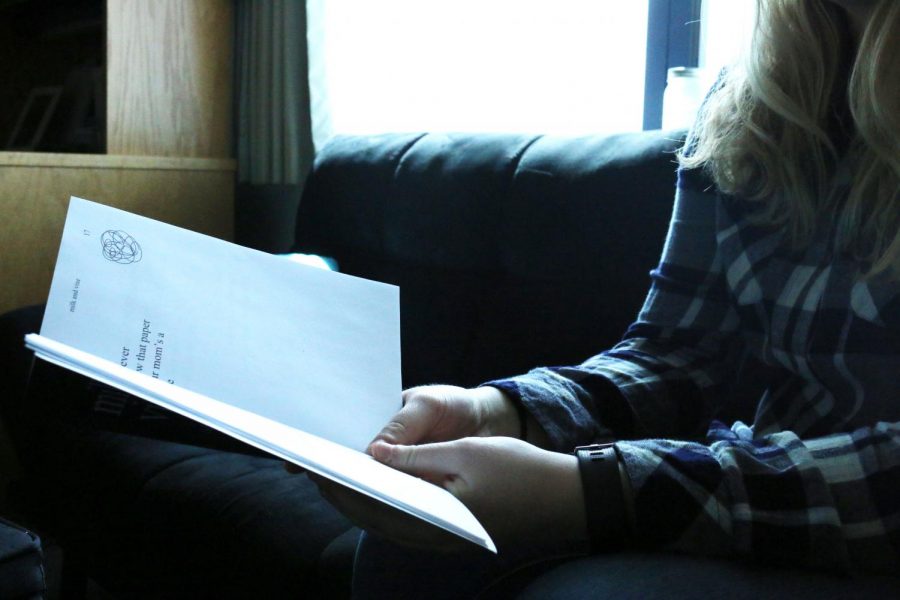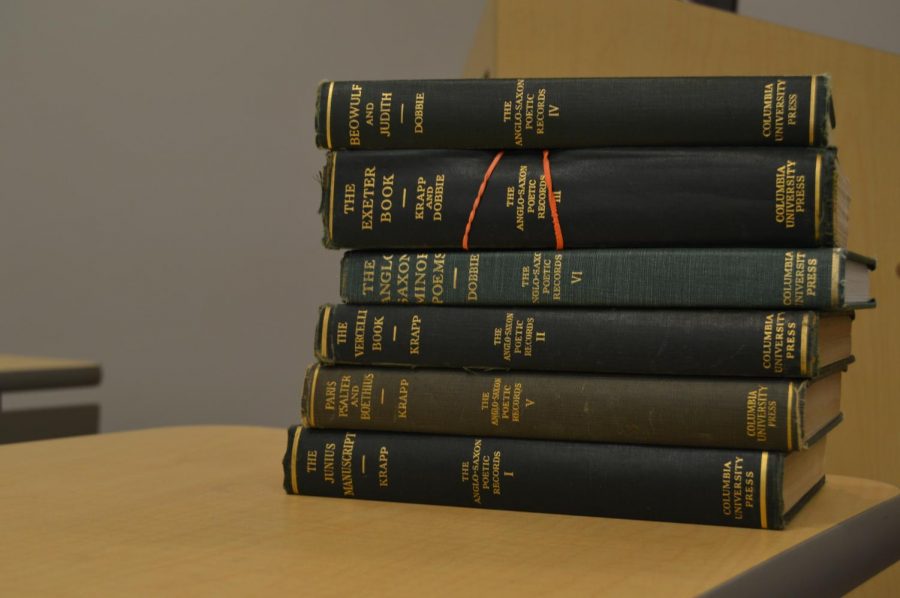As part of National Poetry Month, Poem in Your Pocket Day — celebrated on April 26, 2018 — was first started in 2002 by the Mayor’s Office in New York City in partnership with the city’s Departments of Cultural Affairs and Education.
For six years it was primarily a New York holiday, but in 2008, the Academy of American Poets burrowed it out of the Big Apple and made it more well-known to all 50 states. The day involves selecting a poem you love, carrying it with you and sharing it with others every chance you get.
Poem in Your Pocket Day is especially thought-provoking for professors in the English department, who have trouble picking just one poem. This is the case for Tyler Farrell, an assistant professor in the English Department, who listed many poems, but ended up shedding a light on one in particular.
“One of my favorite poems is ‘In the Bowling Alley’ by James Liddy. Liddy was a poet who was born in Ireland but lived in Milwaukee from 1976 until his death in 2008. He taught at UW-Milwaukee for many years and this poem was written in the 1980s,” Farrell said.
The poem talks about bowling culture in Milwaukee and gossips eagerly about people, society, life and fun. Milwaukee has a long bowling history, and still to this day has one of the oldest bowling alleys in the U.S. with hand-set pins called the Holler House. “In the Bowling Alley” conveys the story with a slanted smile about people watching in a Milwaukee bowling alley.
“It talks of the metaphor of bowling, and how it can relate to almost anyone — how we pass on ideas and thoughts to people and relatives,” Farrell said. “It also address the cycle of life and ties it all to having fun with bowling. It is a wonderful and happy and insightful poem with great commentary and one that entertains and enlightens. Very clever words.”
“Good Bones” by Maggie Smith is a favorite poem of Gerry Canavan, an associate professor in the English department. The poem deals with the innocence and fragility of childhood. “Good Bones” particularly speaks to Canavan on a personal level since he has children.
“I have young kids at home, and it’s just one of the best things about the joys and sadnesses of parenting I’ve ever read, especially in these very dark times for the country and for the planet,” Canavan said. “The innocence of childhood is a very beautiful and very tragic thing, and Smith captures it so wonderfully.”
For Angela Sorby, a professor and the interim chair of the English department, the clarity of the central image of “The Last Quatrain of the Ballad of Emmett Till” by Gwendolyn Brooks makes the poem one of her favorites.
“Emmett’s grieving mother sits indoors drinking black coffee, while outside, chaos unsettles a midwestern prairie,” Sorby said. “Brooks’ spare and lyrical language honors Emmett Till, who died over 50 years ago, but it also somehow mysteriously works to honor more recent victims of racial violence, like Tamir Rice.”
Sorby then went in the opposite direction and recommended a lighthearted poetry book.
“To counterbalance the sadness of my choice, I can’t resist also recommending Brooks’ delightful children’s poetry book, ‘Bronzeville Boys and Girls,'” Sorby said.
Whether it is these recommendations or other unmentioned selections, Poem in Your Pocket Day serves as an opportunity to share the poetry that means the most.





